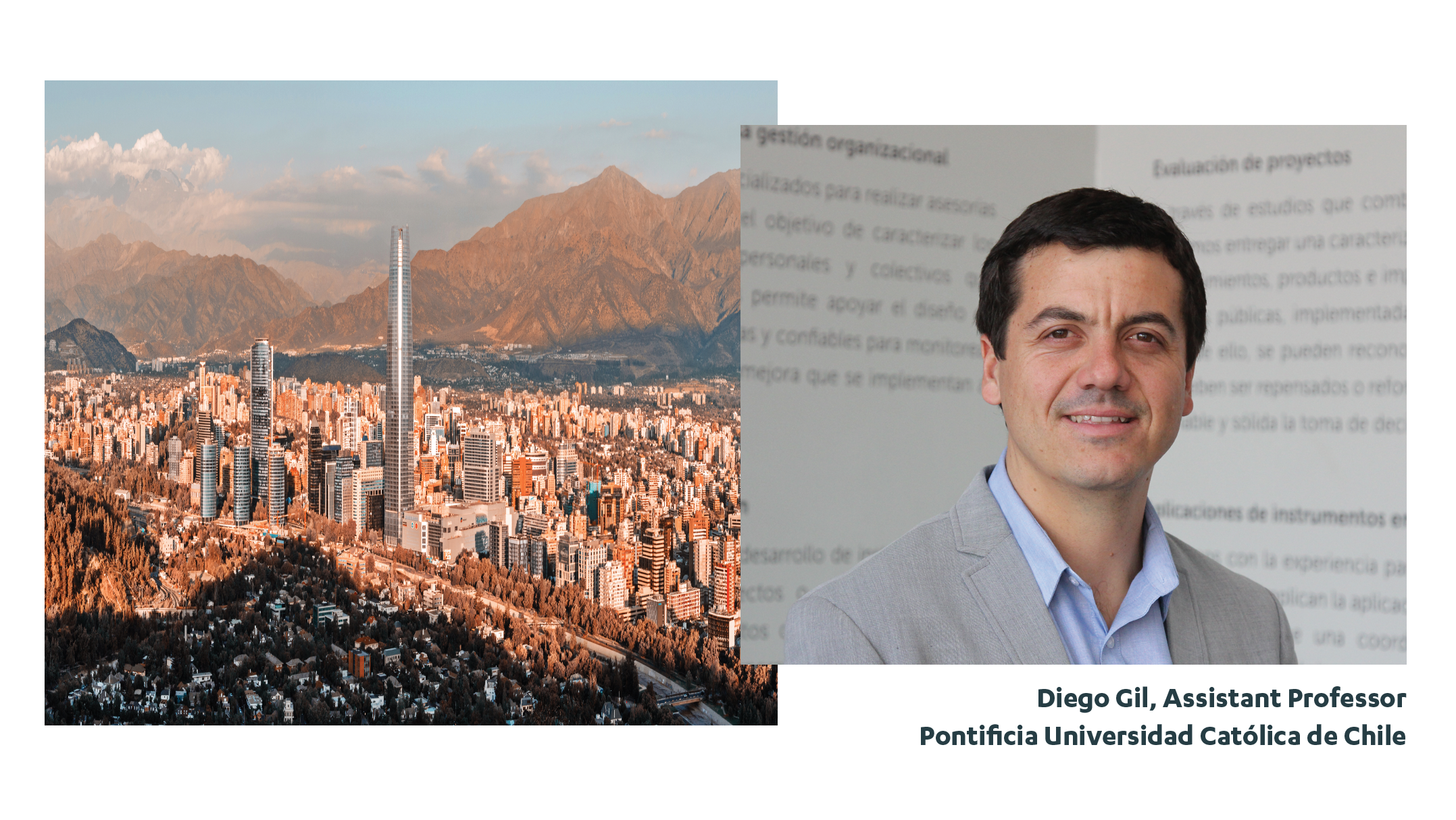The Institutional Construction of Housing Segregation in Chile
Date and time: February 8th, 12:30-2:00 p.m. Lunch provided.
Location: Public Affairs Building 2355
RSVP: bit.ly/HousingSegregationChile
Chilean cities exhibit a pronounced income-based segregation, where higher-income groups typically reside in well-serviced areas, enjoying access to superior public and private amenities. In contrast, lower-income communities often find themselves in neglected neighborhoods with restricted resources. The possibilities of social interaction between these two groups are very limited. Diego Gil will explain how this distinct urban divide is a byproduct of the country’s institutional framework governing housing and urban policy. He will explore three key mechanisms that perpetuate this segregation: the reliance on market-driven government housing subsidies, the emphasis on homeownership, and the localist model of land use regulations. Together, these factors reinforce the persistent pattern of socioeconomic segregation in Chilean urban landscapes. After the presentation, Professor Michael Lens (Associate Faculty Director of the UCLA Lewis Center) will join Prof. Gil in conversation and facilitate a Q&A session with attendees.
 Diego Gil is an Assistant Professor at the School of Government, Pontificia Universidad Católica de Chile. He holds an LL.B. from the University of Chile and a J.S.M. (Master of the Science of Law) and J.S.D. (Doctor of the Science of Law) from Stanford Law School. His main focus of research is how legal institutions shape the socioeconomic outcomes of vulnerable urban communities. His works have been published in esteemed journals such as Cities, Journal of Urban Health, Law & Social Inquiry, Journal of Empirical Legal Studies, and American Journal of Comparative Law.
Diego Gil is an Assistant Professor at the School of Government, Pontificia Universidad Católica de Chile. He holds an LL.B. from the University of Chile and a J.S.M. (Master of the Science of Law) and J.S.D. (Doctor of the Science of Law) from Stanford Law School. His main focus of research is how legal institutions shape the socioeconomic outcomes of vulnerable urban communities. His works have been published in esteemed journals such as Cities, Journal of Urban Health, Law & Social Inquiry, Journal of Empirical Legal Studies, and American Journal of Comparative Law.


